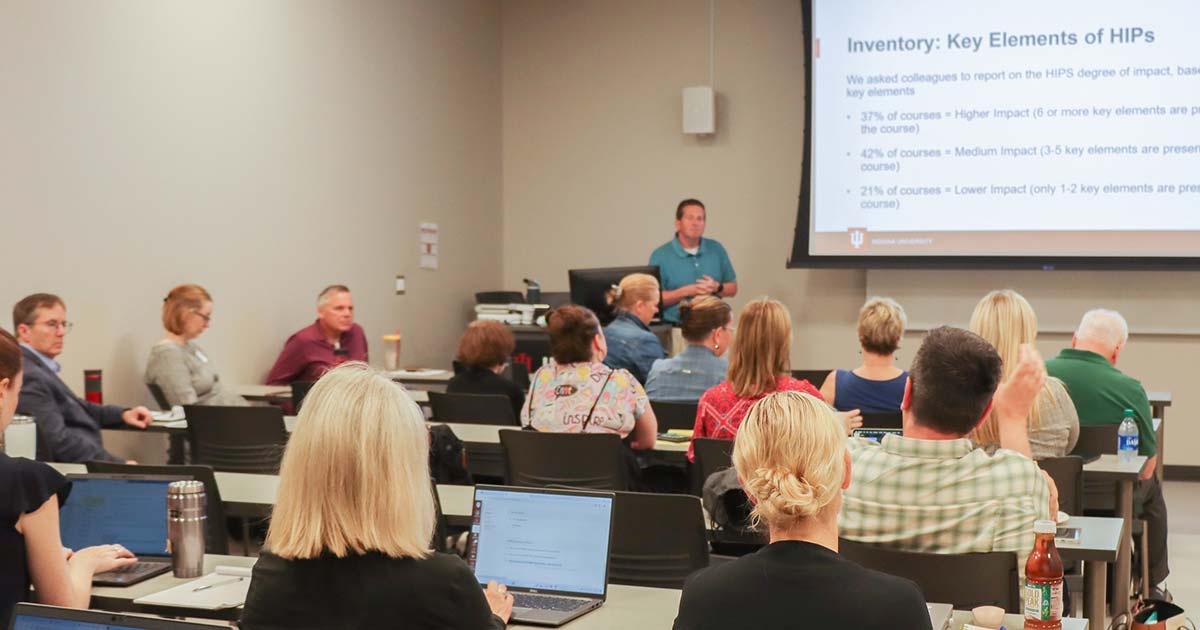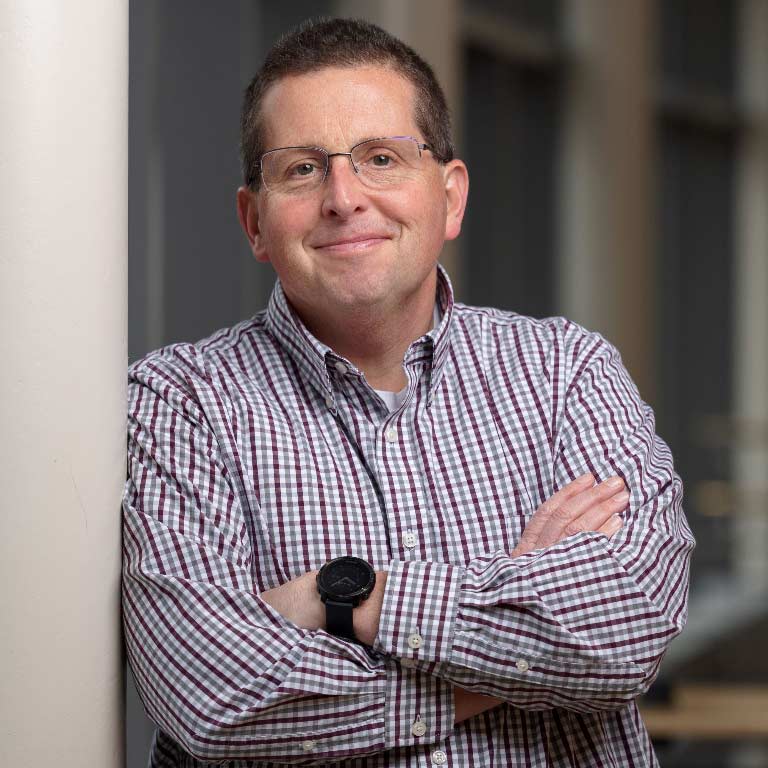The Institute for Engaged Learning has recently expanded their initiatives to help faculty hone their approaches to supporting student success.
This summer, IEL has provided faculty programs focused on topics such as high-impact practices, incorporating service learning into first-year seminar courses, and service learning and civic engagement opportunities for faculty.
The first program, the High-Impact Practices Course Institute, was held in early June over three half days, with 25 faculty members. The program helped faculty brainstorm how they could implement methods to enhance engaged learning opportunities for students. Engaged learning experiences can include internships, undergraduate research, service learning and civic engagement, capstones, and project-based learning.
Jerry Daday, executive associate dean for the institute, believes that programs that seek to build relationships between students and faculty are pivotal for academic and professional development.
“We wanted to help faculty think about how they can incorporate some of the features that make engaged learning so valuable to students,” Daday said, “like the importance of building opportunities to discover real-world applications, opportunities to reflect on and integrate their learning, and having interactions with faculty and peers about substantive matters.”
Activities during the program provided the opportunity for faculty to:
- Learn about the essential elements of high-impact practices and experiential learning
- Reflect on how such essential elements are currently present in the courses they teach
- Reflect upon and plan how such elements can be implemented in the future
- Consider how student learning can be assessed with high-impact practices in courses
Faculty speakers who have integrated high-impact practices into their own courses were also present to share implementation tactics.
Surveys asking for feedback after the program revealed positive results from participants, with many commenting on the program’s exceptional support and realistic approaches.
One respondent wrote, “I really liked the amount of realism that most people brought to the discussion. HIPs are awesome but they can be hard to implement, and, in some cases, they just aren’t a good idea. I have attended a lot of these kinds of things where people don’t really acknowledge the reality of the classroom. It made me feel supported, like I could explain what my challenges were and would be heard rather than people acting like I was being difficult or not trying hard enough.”
Daday acknowledged that having spaces for faculty to learn and gain insight is crucial.
“Providing space for community, sharing, and learning is just as important as any content or resources we might disseminate in a professional development program like this,” Daday said.
Faculty connect with service-learning opportunities
The Center for Service and Learning (CSL), a branch of IEL, has worked closely in also introducing initiatives for effective faculty growth.
In total, CSL has arranged for two initiatives specifically geared toward implementing service learning:
- The integration of service learning into first-year seminar (FYS) courses
- Service Learning and Civic Engagement Faculty (SLCE) Community of Practice (CoP)
“CSL is supporting first-year seminar instructors who are integrating a service-learning experience into their fall FYS course,” said Charity Bishop, interim executive director for CSL and a head facilitator for the initiatives. “The purpose is to ensure high-quality, best-practice service-learning experiences.”
Participating faculty will take part in a series of three in-person workshops over the summer, which will include Canvas modules to further prepare for the transition within fall FYS courses. Workshops will consist of guest speakers from community agencies who will share best practices for working with community partners, samples activities, course templates, and assignment and service-learning activity development.
The purpose of the SLCE CoP initiative reflects campus priorities to support equitable access to engaged learning for all students. This will help increase support and improvement of sustained service learning and civic engagement initiatives implemented within curriculums. The timeline for the program will continue through a 12-month period and will focus on transforming SLCE experiences into credit-bearing courses.
Through the initiative, the 12 faculty members involved will meet regularly, exchange ideas, learn best practices, and create plans for progress in their individual courses. To support coursework and program development, faculty members will also work with a student employee to support coursework and program development.
Daday and Bishop both share similar hopes for IEL’s new faculty initiatives.
“Faculty will create service-learning courses that are sustainable, impactful, and of high-quality that are accessible to many students across campus,” Bishop said.
Daday looks forward to the HIPs initiative helping faculty realize that there are other faculty like them on campus who genuinely care about offering students high-quality and engaged learning experiences in their courses.





